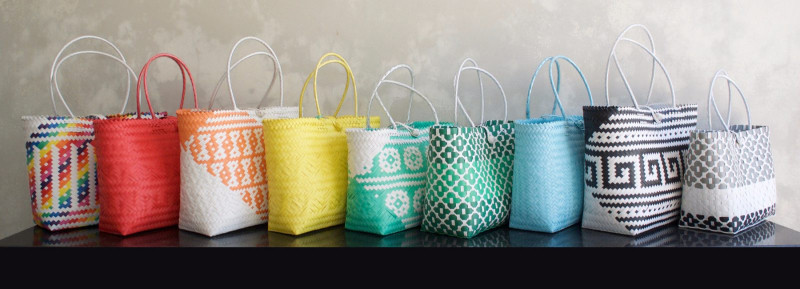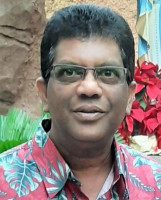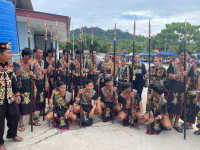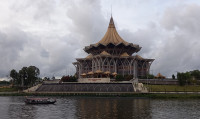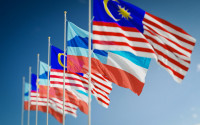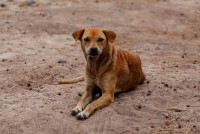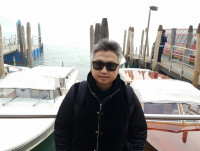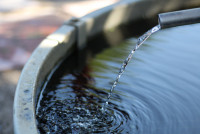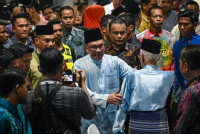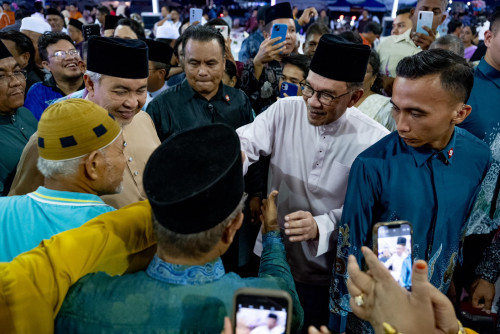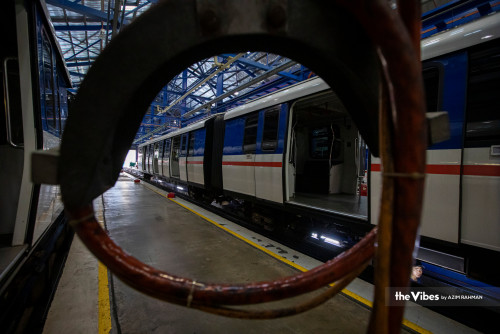THE Borneo states of Sarawak and Sabah have since time immemorial been popular for their artistic handicrafts.
But, these handicrafts which once served various needs of the indigenous folks in their domestic life have not only grown to become practical – they are also fashionable novel curios for city folks and tourists today.
The old tradition of weaving and crafting among the different native groups such as the Bidayuh and the Iban, the Kelabit and the Melanau, Kenyah, and Kayan from Sarawak’s heartland, and crafts from Sabah’s Kadasandusun people have stood the test of time and seem to be in vogue perpetually.
Today, items like mats and baskets, tote bags and handbags as well as baby carriers are sold in tourist hotspots, at upbeat fashion and accessory boutiques in the cities, and are even seen flashing their “fashion statement” on the Shopee platform.
Astonishingly, an international retailer, Global Beads Inc based in California, is showcasing a Dayak baby carrier originating from the second quarter of the 20th century.
The colourful baby carrier made of wood and woven rattan, decorated with a woven panel of glass beads, bronze bells, and bone ornaments like animal teeth is up for sale as a collector’s item at the princely price of US$2,800 (RM11,944).
Handmade allures
Surprisingly, this bevy of indigenous crafts is not manufactured and rolled out commercially from the assembly line. They come from the sweat and toil of a loose army of housewives and young girls who hand-make them.
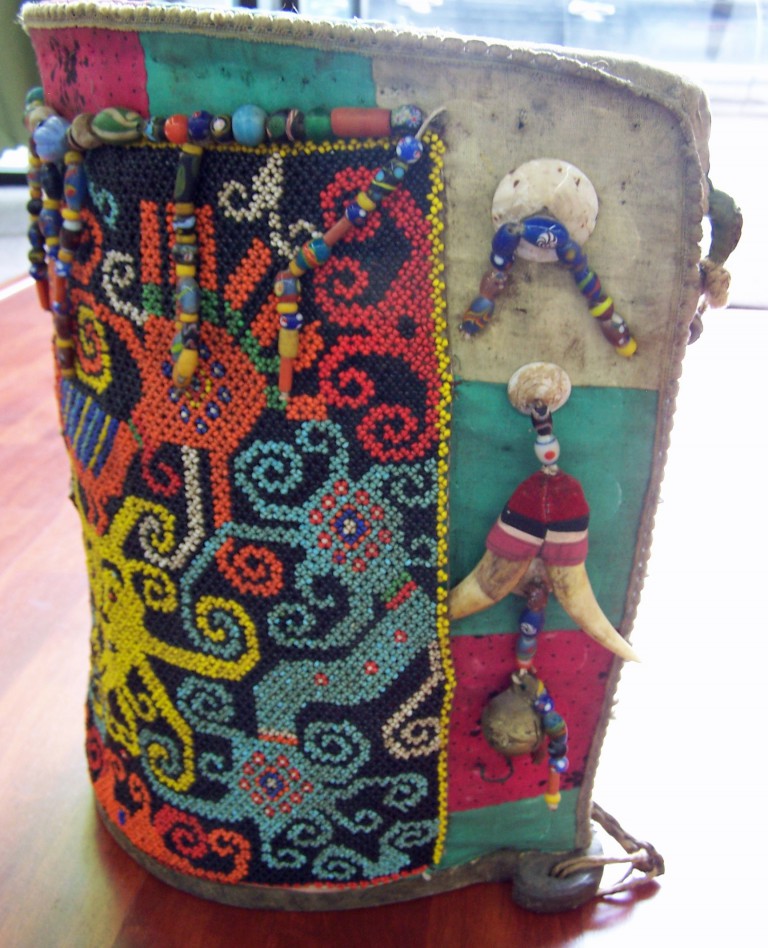
Products from this pastime activity eventually came to be sold at Sunday markets, thus generating a supplementary household income for this mostly rural womenfolk.
Eivenner Suria is among the hundreds of women who engage in this cottage industry spread throughout the state. Though a new player in this backyard business, Eivenner is confident that she is not the least nor the last to engage in weaving.
She says more and more women take to weaving to earn extra income.
“This was especially evident during the recent pandemic lockdowns when family breadwinners lost their jobs and their steady monthly income,” Eivenner told The Vibes when met at her village in Lundu.
“I took up weaving mats and baskets a few years before the pandemic. I learned the art from a Facebook tutorial and quickly latched onto it. It seemed easy so I was able to learn quickly and even enjoyed the time spent on creating these crafts.
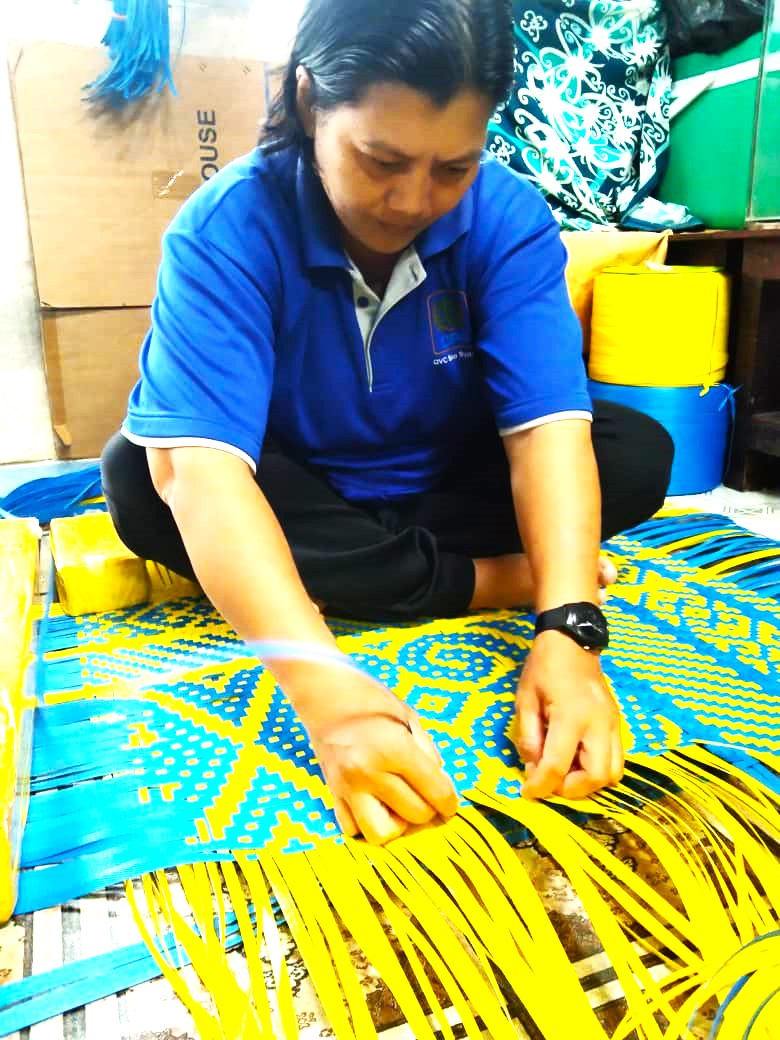
“Though I am a newbie to weaving and creating crafts, I have seen older women involved in this art as a little girl. These women, most of whom were farmers created different types of woven crafts for a variety of uses on the farm.
“Women from the Bidayuh community weaved big carrying baskets and smaller ones called ‘tambok’ from bamboo. The bigger baskets were carried on their backs to transport farm harvests to be sold in the markets.
In the same way, the Penan womenfolk also used bamboo to create their crafts such as baby carriers.”
According to Eivenner, the abundance of natural materials in the rainforests inspired the rural communities to weave these home-spun crafts.
She says: “Bamboo, rattan and pandanus leaves were easily available and were the popular material used for weaving and more so they were freely obtained.
“But it is a different story today,” says Eivenner.
“While there are still many indigenous communities who use natural materials to weave their crafts, plastic materials are the ‘in’ thing today because natural materials like mengkuang, bamboo, and rattan must be processed to make them sturdy and malleable before they can be used as weaving materials.
“The period of processing takes a long time and is tedious, so like me, most women today choose plastic packing strips of various colours to weave the crafts.”
Eivenner says apart from mats she also weaves baskets and decorative items for cars and trinkets for traditional costumes such as the Iban’s “ngepan indu”. But, she says most of her customers make orders for her 6'x10' mats of various designs.
She says, "These mats range in price from RM500 to RM700 depending on the designs preferred by customers. There are many design selections such as ‘Berchengkerama,’ ‘Pua Kumbu Kumang,’ ‘Buah Keben,’ and ‘Bunga Loceng.’ The most popular design sought by customers is the ‘Pua Kumbu Kumang.’
It takes 10 days for Eivenner to complete a 6’x10’ mat. “But sometimes I can complete the weaving in seven days. I am more productive during school holidays as I do not have to deal with my children’s school affairs,” adds the mother of four.
On average, Eivenner can produce three or four pieces of 6’x10’ mats in a month. “That makes up a tidy sum to supplement my household income," says Eivenner whose husband is a supervisor at an aquaculture farm.
Helping hand for Penan weavers
The hunter-gatherer Penan tribe who live in the rainforests of the interior of Sarawak are known to be expert weavers. Though traditionally nomadic, most of the 10,000-12,000 Penan now live in settled communities.
However, they continue to rely on the forest for their existence. Some still live nomadically and continue to create beautiful handicrafts for sale.
While they were once a loose band of weavers, eking out a living selling forest products and woven products, today they have come together as a united force under the Penan Women Project (PWP).
Speaking to The Vibes recently, the co-founder and chairperson of PWP Ann Wong said: “PWP is essentially about income generation while preserving the art of traditional weaving.
"Traditional Penan artwork is introduced to urban customers by giving a colourful and contemporary twist to bags, totes, baskets, clutches, and household decorative items.”
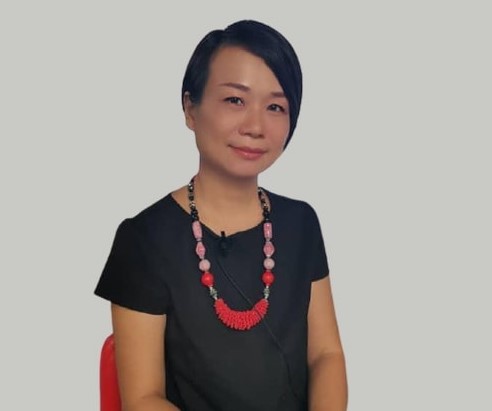
According to Wong, PWP started as a social enterprise to help Penan women earn regular income from crafting handmade bags using traditional techniques and motifs.
“This project empowers the Penan women in their livelihood, it also ensures the continuity of their weaving heritage. Currently, we work with 80 weavers from Long Kevok, Long Latek, Long Karangan, Long Urang, Long Nen, and Long Belok.
"A hundred percent of the proceeds from the sale of the bags are channelled back to the Penan community and for the continuation of the social enterprise.”
According to Wong, bags from PWP are handwoven in the forests but they are designed for city chic. “It is a modern twist to handmade bags from the forests and is very popular among urban folks.”
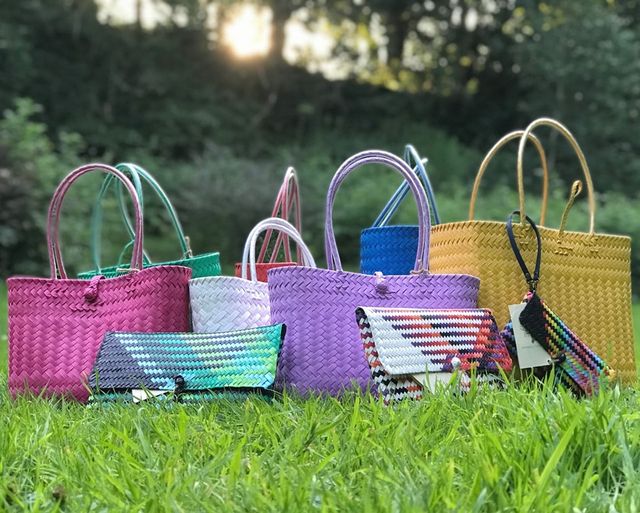
She said: “To lend a personal touch each bag carries a tag with the name and photo of the Penan woman who weaved the bag. They also carry a Penan authenticity badge so that buyers can be sure that they are supporting a Penan weaver.
"The bags are strong, durable, and washable and are available in various sizes to suit different occasions." – The Vibes, June 5, 2023



